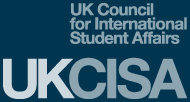Apologies, but the page you requested could not be found. Perhaps searching will help.
-
Recent Posts
- Our final blog entry 23 December 2019
- Advice for Living in Student Accommodation 31 May 2019
- Specialist Academic Preparation for starting the IB 13 May 2019
- What can I do over the Christmas holidays? 20 December 2018
- 5 Tips for Postgraduate Study 08 November 2018
- How to Write an Essay: Tips for ESL (English as a Second Language) Students 18 October 2018
- Lecture Tips for International Students 18 September 2018
- Things I wish I’d known before I came to the UK 27 July 2018
- Staying Focused When You’re Missing Home 20 April 2018
- Study Tips for International Students 06 April 2018
- How to Make Friends at University for International Students 06 February 2018
- Getting into Higher Education for Refugees 04 January 2018
- Teaching Syrian and other refugees 15 December 2017
- Should I employ an English tutor to help with my university studies? 04 December 2017
- Five ways to kill time without your phone 21 November 2017
- Photo competition – International students: changing lives 20 October 2017
- A student’s guide to bills in the UK 16 October 2017
- Getting Ready for Results Day 15 August 2017
- Aim Higher for UK Education 23 June 2017
- 7 Alternative Study Break Activities for Students 18 May 2017
Archives
- December 2019
- May 2019
- December 2018
- November 2018
- October 2018
- September 2018
- July 2018
- April 2018
- February 2018
- January 2018
- December 2017
- November 2017
- October 2017
- August 2017
- June 2017
- May 2017
- April 2017
- February 2017
- January 2017
- December 2016
- September 2016
- August 2016
- July 2016
- June 2016
- April 2016
- February 2016
- January 2016
- December 2015
- November 2015
- September 2015
- July 2015
- June 2015
- May 2015
- April 2015
- March 2015
- February 2015
- January 2015
- December 2014
- November 2014
- October 2014
- September 2014
- August 2014
- July 2014
- June 2014
- May 2014
- April 2014
- March 2014
Calendar
July 2025 M T W T F S S 1 2 3 4 5 6 7 8 9 10 11 12 13 14 15 16 17 18 19 20 21 22 23 24 25 26 27 28 29 30 31 Recent Comments
- Chau Dang on What are Pre-sessional courses?
- Skyarena.io on Teaching Syrian and other refugees
- Anuj Kumar on Study Tips for International Students
- Tori on Banking in the UK for international students
- Nure Alam Howlader on When do UK universities and colleges have holidays?









